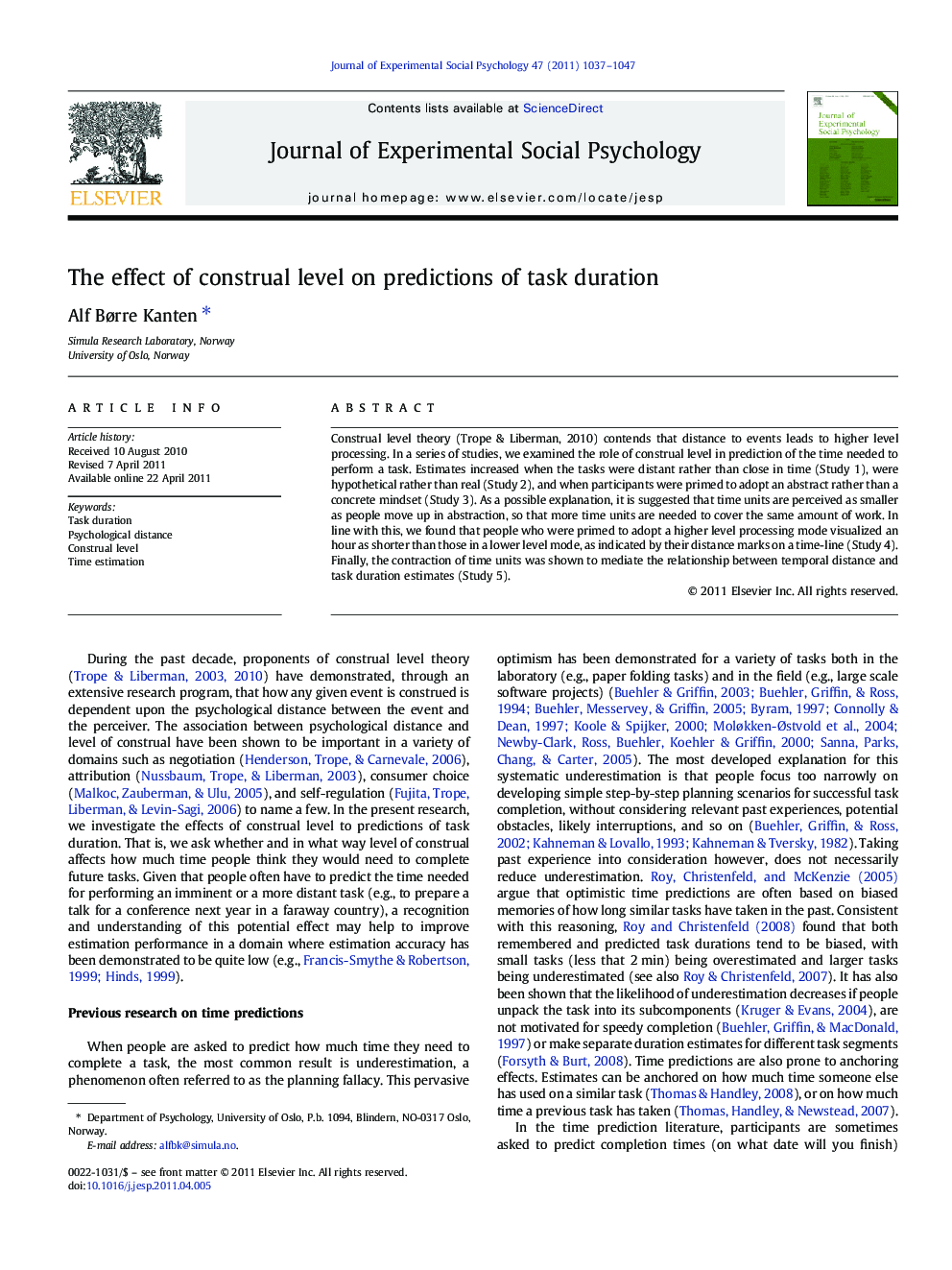| Article ID | Journal | Published Year | Pages | File Type |
|---|---|---|---|---|
| 947968 | Journal of Experimental Social Psychology | 2011 | 11 Pages |
Construal level theory (Trope & Liberman, 2010) contends that distance to events leads to higher level processing. In a series of studies, we examined the role of construal level in prediction of the time needed to perform a task. Estimates increased when the tasks were distant rather than close in time (Study 1), were hypothetical rather than real (Study 2), and when participants were primed to adopt an abstract rather than a concrete mindset (Study 3). As a possible explanation, it is suggested that time units are perceived as smaller as people move up in abstraction, so that more time units are needed to cover the same amount of work. In line with this, we found that people who were primed to adopt a higher level processing mode visualized an hour as shorter than those in a lower level mode, as indicated by their distance marks on a time-line (Study 4). Finally, the contraction of time units was shown to mediate the relationship between temporal distance and task duration estimates (Study 5).
► Moving up in construal level caused people to estimate tasks to require more time. ► Abstraction caused people to visualize an hour as shorter. ► The contraction of time units mediated the effect of abstraction on task estimates.
